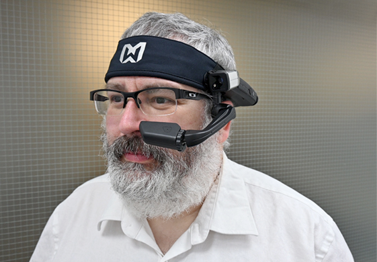The West Mercia Rural 5G consortium has showcased the findings from its 2-year 5G project that ended in June 2022.
nexGworx assisted the project by providing network support and their expertise around 5G deployments and operating 5G use cases. nexGworx was set up following the Worcestershire 5G project and continues to offer 5G Testbed as a Service and professional advice and support; having a wealth of experience in the adoption of smart connected solutions across various sectors including manufacturing and health and social care.
The WMR5G project set out to explore the challenges when planning, building, and operating a 5G network in a rural setting; and how 5G could enhance services for the benefit of residents, particularly within a health and social care setting.

“Worcestershire County Council is delighted to have taken part in this exciting test project to investigate the positive impacts that emerging 5G technologies could have on rural communities. I’m particularly pleased to see the outcomes of how 5G networks can support health and social care services.
The project highlights the huge joint ambitions of the innovative public and private sector partners we have drawn together, as we strive to find ways to provide better connectivity and improve access to key services in rural areas.
Councillor Marc Bayliss, Worcestershire County Council’s Cabinet Member with Responsibility for Economy, Infrastructure and Skills

“The results of our 5G research showcases how by adopting smart connected solutions we could deliver public services to rural areas in a different way which would provide benefits to the NHS, councils and members of the public.
Both private and public networks will be a part of the solution and we recognise that digital connectivity both fixed and mobile need to continue to improve across our area.
I also look forward to seeing how local businesses and innovators can use this exciting technology to create new and innovative products and services.”
Mark Stansfeld, Chair of West Mercia Rural 5G Project
The project was one of six Government backed as part of Department for Digital, Culture, Media and Sport’s Rural Connected Communities scheme that were announced in Spring 2020 to explore 5G technology and their applications in rural areas.
The project set out to explore two very distinct challenges.
To test how the UK mobile industry could deploy 5G in rural areas at pace and at reasonable cost. Here, the focus was on the potential for the utilisation of existing ‘fixed wireless’ assets and whether this does or does not have an impact on timescales and costs.
Secondly, how 5G could enhance services for the benefit of residents, particularly within a health and social care setting through two use cases.
Two cases were chosen utilising the 5G network.

A project called Health XR which supported the development and evaluation of ‘extended reality’ to track improvements in gait and movement for people using hospital physiotherapy services.

And a second project called ‘Connected Worker’ gave GPs and community nurses access to support workers in care homes equipped with wearable connected cameras. This examined how effective the increased connectivity is in providing rapid access and information to assist the resident’s welfare.
Overall benefits included saving transport time and costs, reducing stress to patients being transported, ability to see more patients or provide longer time slots and enabling clinical staff to better understand the issues of a patient before attending site.
Project partners are continuing to share the lessons learnt and are working together on other projects that recognise the benefits of connected digital solutions, including 5G can offer in the health and social care sector.
To read the full High Level Summary Report or download a copy of, please use the following link https://wmr5g.org.uk/?page_id=1276
Notes to Editors
The Department for Digital, Culture, Media, and Sport (DCMS) 5G Testbed and Trials Programme is the cornerstone to the government’s ambition for the UK to be a leader in the next generation of mobile technology, 5G. The other projects funded as part of the Rural Connected Communities round were
- Mobile Access North Yorkshire (MANY)
- 5G Connected Forest
- MONeH (Multi Operator Neutral Host)
- 5G RuralDorset
- 5G New Thinking
The consortium that made up the project included public, private and academic institutions and was led by Worcestershire County Council. These were Airband Community Internet, BT, NHS Herefordshire and Worcestershire ICB, Shropshire Council, University of Chester, University of Worcester, VR Simulation Systems Ltd and West Midlands Academic Health Science Network


